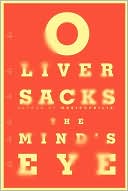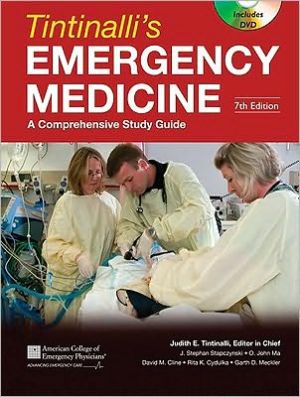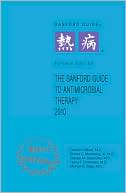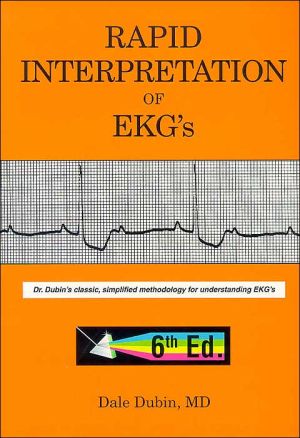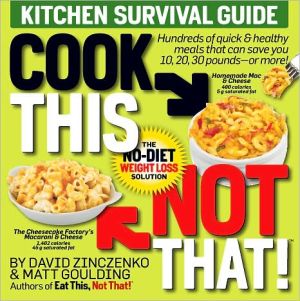Crisis Intervention Handbook: Assessment, Treatment, and Research
As a result of the growing amount of acute crisis events portrayed in the media that impact the lives of the general public, interest in crisis intervention, response teams, management, and stabilization has grown tremendously in the past decade. However, there exists little to no literature designed to give timely and comprehensive help for crisis intervention teams. This is a thorough revision of the first complete and authoritative handbook that prepares the crisis counselor for rapid...
Search in google:
Crisis intervention has become the most widely used brief treatment modality in the world. As a result of millions of acute crisis events occurring each year and impacting the lives of the general public, interest in crisis intervention, response teams, and crisis management has grown tremendously in the past decade. However, there exists a limited amount of literature designed to give timely and comprehensive help for crisis workers. This book fills that gap. It is the first interdisciplinary handbook to prepare the crisis counselor for rapid assessment and timely crisis intervention in the 21st century. In this classic volume, Dr. Roberts and 34 clinical experts and distinguished chapter authors have set the "standard of care and treatment" for persons in trauma and acute crises. This handbook gives all professionals ready access to the specific guidelines, practice techniques, protective factors and resilience, case study applications, and crisis intervention strategies that are most appropriate for maximizing opportunities for rapid assessment and crisis resolution. Now expanded and fully updated, Crisis Intervention Handbook: Assessment, Treatment, and Research, Second Edition focuses on crisis intervention services for persons who are victims of natural disasters, school-based and home-based violence, violent crimes, and personal or family crises. Consisting of five parts, it covers a broad array of subjects, including psychiatric emergencies, medical crises, community-wide disasters, and high school shootings. Part I provides an overview; Part II addresses crisis assessment and intervention models for children and youths; Part III explores crisis intervention and prevention for victims of violence; Part IV describes crisis assessment and intervention in health and mental health related crises; and Part V focuses on research and outcome studies on the effectiveness of crisis intervention programs throughout the world. In the current managed-care era of accountability and utilization of best practices, every practitioner will find this handbook indispensable and essential reading. It applies a unifying model of crisis intervention, making it appropriate for front-line crisis workers, clinical psychologists, social workers, psychiatric mental health nurses, counselors, and graduate students who need to know the latest steps and methods for intervening effectively with persons experiencing a full-blown crisis episode. Doody Review Services Reviewer:Pamela Marcus, RN, MSCS(Private Practice)Description:This book is a chronicle of the advances made in the last ten years in crisis intervention as well as a presentation of the editor's seven-stage model of intervention with the addition of sixteen new chapters and original chapter revisions.Purpose:The editor uses research and trends in crisis intervention to provide a conceptual base that can be used by the crisis intervention professional. His model assists the crisis counselor to utilize an immediate, short term, and structured means of providing care that is geared to buoying up the individual's coping abilities for short term crisis resolution.Audience:This book is written for graduate level clinicians in mental health services. This is an excellent reference to be used as a textbook in a graduate level program.Features:This text is divided into five parts. In the overview the editor gives a comprehensive background of crisis intervention theories as well as the introduction of his model. He includes crisis assessment and treatment of children, victims of violence, health related crisis, and research. Different crisis intervention delivery systems are discussed.Assessment:Since I reviewed the book I have begun using it as a teaching tool in the Crisis Intervention Service where I am the clinical director. The Robert's Model is particularly helpful for use as a conceptual basis for crisis intervention practice. Critical Incident Debriefing is also covered in a comprehensive manner and can reinforce learning for practitioners who are certified in CISM, as well as whet the appetite for clinicians who are not certified in this practice.
Part I: Overview
\ From the Publisher"This is the most practical time-limited treatment book I have read in the past 10 years. It is timely, focused, straightforward, comprehensive, empowering, highly readable, and extremely valuable." --Ann Wolbert Burgess, RN, CS, D.N.Sc., FAAN, DACFE Professor of Psychiatric-Mental Health Nursing, Connell School of Nursing, Boston College\ "Crisis Intervention Handbook, Third Edition, is an indespensable resource that offers intervention strategies, guidelines, and numerous case examples for practitioners. This book provides the most up-to-date approaches to deal with the crises and traumas of the 21st century, such as bioterrorism, terrorist attacks, and the use of weapons of mass destruction. A must-read for practitioners and students alike." --Phyllis Solomon, Ph.D., Professor, School of Social Work, Professor in Psychiatry, School of Medicine, University of Pennsylvania\ "Professor Albert R. Roberts's third edition of his now classic Intervention Handbook is an astute, comprehensive, and up-to-date volume for practitioners, responders, and scholars working in contemporary crisis intervention. Adding up to much more than the sum of its parts, [this handbook] is a must-have for the mental health-critical care specialist's personal library, college and university libraries, and public library reference section." --Richard L. Levenson, Jr., Psy.D., CTS, Licensed Psychologist, Managing Editor, International Journal of Emergency Mental Health\ "This book is a must for social workers, psychologists, nurses, crisis counselors, and other human services professionals. It is a classic and timely volume on all aspects of crisis and crisis intervention. Dr. Roberts and his esteemed author team of 50 professors and clinicians have provided an exceptionally well-written, evidence-based, highly readable, insightful, practical, and pathfinding book." --C. Aaron McNeece, Ph.D., Dean and Walter W. Hudson Professor, School of Social Work, Florida State University\ "With its emphasis on contemporary issues, Crisis Intervention Handbook, Third Edition, is the leading edge of knowledge in the field. Fifteen new chapters focus on the most important issues for the mental health and disaster relief professionals who respond to traumatized individuals and families in a post-9/11 world. The current need for culturally sensitive crisis intervention is critical, and Roberts's book is a powerful tool to meet the needs of first responders of all sorts." --Jeanne A. Clement, Ed.D., APRN-BC, FAAN, Associate Professor, Nursing and Psychiatry, Director, Specialty Program in Psychiatric-Mental Health Nursing, College of Nursing, The Ohio State University\ "Robert's third edition of the Crisis Intervention Handbook is an outstanding resource for clinicians and students in the helping professions. As in past editions, Roberts's crisis intervention model provides the foundation for the book. In each of the 32 chapters, clinical examples and up-to-date research findings are beautifully integrated in order to provide readers with specific assessment and practice guidance. The addition of two chapters dedicated to the evaluation of crisis intervention completes the book, making it an invaluable asset for current practitioners and students alike." --M. Elizabeth Vonk, M.S.W., Ph.D., Associate Professor, School of Social Work, University of Georgia\ "This is a very worthwhile volume that will be valuable for most mental health professionals. It is a handbook that targets practitioners, and it provide rich clinical information, helpful tips, guidelines, and tools to be used in crisis intervention. Many psychologists should read the book..."--Psyccritiques\ \ \ \ \ \ From The CriticsReviewer: Pamela Marcus, RN, MSCS(Private Practice)\ Description: This book is a chronicle of the advances made in the last ten years in crisis intervention as well as a presentation of the editor's seven-stage model of intervention with the addition of sixteen new chapters and original chapter revisions.\ Purpose: The editor uses research and trends in crisis intervention to provide a conceptual base that can be used by the crisis intervention professional. His model assists the crisis counselor to utilize an immediate, short term, and structured means of providing care that is geared to buoying up the individual's coping abilities for short term crisis resolution.\ Audience: This book is written for graduate level clinicians in mental health services. This is an excellent reference to be used as a textbook in a graduate level program.\ Features: This text is divided into five parts. In the overview the editor gives a comprehensive background of crisis intervention theories as well as the introduction of his model. He includes crisis assessment and treatment of children, victims of violence, health related crisis, and research. Different crisis intervention delivery systems are discussed.\ Assessment: Since I reviewed the book I have begun using it as a teaching tool in the Crisis Intervention Service where I am the clinical director. The Robert's Model is particularly helpful for use as a conceptual basis for crisis intervention practice. Critical Incident Debriefing is also covered in a comprehensive manner and can reinforce learning for practitioners who are certified in CISM, as well as whet the appetite for clinicians who are not certified in this practice.\ \ \ 4 Stars! from Doody\ \




